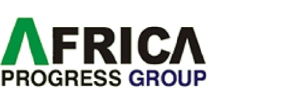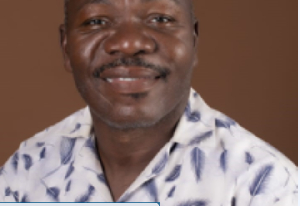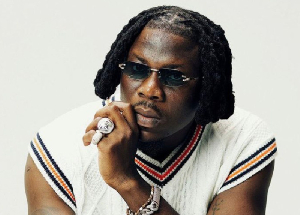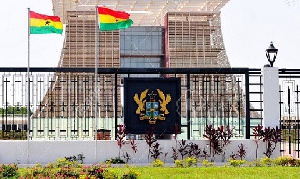The Africa Progress Group (APG) whose membership includes past Heads of State and Government of African nations and leaders of the private sector convened a High Level Regional Consultation on “Rethinking Western Liberal Democracy in Africa” from November 21-22, 2023.
The objectives of the first phase of the series of Consultations were to:
1. Evaluate the success and failure stories of the impact on the society generally and especially on soio-economic development, of the adoption of Western liberal democracy by African countries; and
2. Propose a model of democracy that will be progressively refined through follow up consultations and discussions, which better suits national and regional socio cultural contexts and with more promising potential for fostering peace, inclusivity, stability, security and progress in Africa.
Presentations were given by members of the political and academic communities who emphasised the need to conceptualise a system of democracy that adapts to Africa’s historical, cultural, values and current realities as Western liberal democracy which has been touted as the ideal form of governance in Africa is plagued with several weaknesses which even the West is interrogating.
Conclusions and Resolutions
After extensive deliberations, participants:
applauded the initiative of HE Olusegun Obasanjo as Chairman of the Africa Progress Group in convening the high-level consultation on “Rethinking Western Liberal democracy for Africa”.
reiterated that the idea is not to jettison democracy but to refine its practice that will be socio-cultural relevant to the African content and context. appreciated the need for such rethink which is stimulated by the corrupted practice of Western liberal democracy in Africa and weak delivery of development outcomes especially economic dividends.
noted that recent spate of coup d’état in Africa estimated to be about 109 episodes in the last 40 years is indicative among several other factors, of failure of Western liberal democracy.
observed that any form of democracy to be successfully administered, requires at least five prerequisites to thrive in Africa. These are an enlightened/educated citizenry; good leadership; strong institutions, good middle class and socio-culturally relevant context.
underscored that the resolutions are of broad regional application and not narrowed to spotlight selected countries in Africa.
Challenges to Western liberal democracy
Participants highlighted the challenges to Western liberal democracy in Africa to include:
1. Majoritarian, maximalist, winner-take-all syndrome
2. Mismanagement of diversity especially in terms of ethnicity, religion, culture and language.
3. Monetised politics which comes in the form of vote buying and bribes, rendering political power to the highest bidder and highest spender during an election.
4. Pervasive poverty.
5. Inherited colonial fragmented societies with artificial borders. Election malpractice and corruption characterised by tribalism, nepotism, and stimulated by non-independent electoral body and judiciary.
6. Interference by foreign countries in electoral processes through enforcing their preferred choice of political candidates in return for doing their bidding.
7. Gender bias and inequality in the African society hindering the equal participation of both genders in politics.
8. Lack of character and enchanting attributes among contenders and systems administered
Essential Elements of African culture that promote the practice of democracy
Participants further reflected on the values that are common across African cultures that promote socio-culturally-relevant democratic practice. These include:
1. The indigenous African political system has elements of communalism, participation, inclusiveness and communal decision-making.
2. Existence of a form of judicial system for addressing grievances and settling of disputes.
3. The indigenous African political systems made provision for impeachment of traditional rulers thereby limiting arbitrary use of power and autocratic government.
4. Independent institutions which had power of impeachment when a monarch is found corrupt or governing against the will of the people.
5. The presence of inbuilt mechanism of accountability and the adoption of checks and balances.
6. Grassroot participation as majority is involved in the political process.
7. Dispute and grievance management systems that promote and protect peoples’ rights and enhance unity.
8. Impunity is normally removed through wide consultation and non marginalisation.
Form of democracy envisaged for Africa
Participants agreed that the form of democracy for Africa, labelled Afrodemocracy, should be socio-culturally relevant to the African context and most suitable for ensuring peace, security, stability, and all-inclusive progress.
The irreducible minimum of the contents and contexts include:
People-centered and hinged on African history, socio-cultural ideologies and ethical value systems; characterized by equitable distribution of resources, inclusivity, and acceptance of differences; led by transformational, selfless leaders who will be focused on delivering the dividends of democracy in terms of quality of life for its citizens; embraces the core tenets of rule of law, multiparty system, human rights, separation of powers, competition, collaboration, cooperation, checks and balances; characterised by cultural, religious, political and economic freedom; exhibiting strong institutions with strong economic fundamentals; promotes dialogue, and accommodates diverse voices and interests.
Beyond these irreducible minimum chacteristics, other contents and contexts of Afrodemocracy should be customised to fit local needs and constitutions drawn to meet local and national situations should be subjected to periodic peer reviews.
Next steps
Participants directed the Africa Progress Group (APG) to follow up this initial high-level consultation with other levels of activities involving larger spheres of stakeholders including the youth, women and other special groups and interests.
In this context, two follow-up regional and global consultations are envisaged to further refine the model and assure its progress in widening and deepening contributions and involvements to fruition.
Press Releases of Monday, 27 November 2023
Source: Africa Progress Group

















